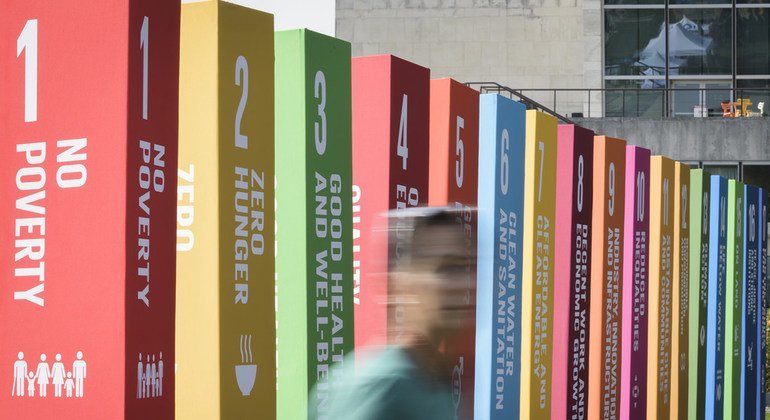World gets ‘failing grade’ in Global Goals report card


The 2024 Sustainable Development Goals Report Highlighting that nearly half of the 17 goals are showing minimal or moderate progress, while more than a third are stalling or going backwards, since they were adopted of the United Nations Member States in 2015 to bring peace and prosperity to people and the planet.
“This report is called the annual SDG report card and it shows The world is getting bad grades,” UN Secretary General António Guterres say at press conference launch comprehensive inventory
“The bottom line here is simple – our failure to ensure peace, respond to climate change and leverage international finance is undermining development. We must act quickly because Sustainable development goalsand we have no time to lose”, he emphasized.
Major obstacles
The report identified the lasting effects of COVID-19 Pandemics, escalating conflicts, geopolitical tensions and worsening climate chaos are major obstacles to progress.
The report notes that 23 million more people are expected to fall into extreme poverty and more than 100 million more are facing hunger in 2022 compared to 2019, while civilian deaths in armed conflict spiked last year.
2023 is also the warmest year on record, with global temperatures nearing the crucial threshold of 1.5°C.
Urgent priority
Mr. Guterres emphasized the urgency of promoting international cooperation, stating, “We must not abandon the promise of 2030. to end poverty, protect the planet and leave no one behind.”
The report outlines key priorities for addressing the deficit.
First of all, it emphasizes the need to development funding. The SDG investment gap in developing countries is $4 trillion per year. It is important to rapidly increase funding and financial space, as well as reform the global financial system to unlock funding.
Conflict resolution through dialogue and diplomacy are equally important. With nearly 120 million people forcibly displaced by May 2024 and civilian casualties rising 72% between 2022 and 2023, the need for peace is more urgent than ever.
In parallel, one breakthrough in implementation is urgently needed. Large investments and effective partnerships are essential to drive transformation in key areas such as food, energy, social protection and digital connectivity.
Seize the opportunity
The report was issued in advance. High-level political forum on Sustainable Development (HLPF), taking place at United Nations Headquarters, New York, from 8 to 17 July.
Under the auspices of Economic and Social Council (ECOSOC), The forum will review global progress for Goal 1 on ending poverty, Goal 2 no longer hungry, Goal 13 on climate action, Goal 16 on peaceful and inclusive societies, and Goal 17 about means of implementation.
Also, coming soon The Summit of the Future September will be a key time to realign efforts to achieve the Goals. The summit aims to address the debt crisis affecting many developing countries and the urgent need to reform the international financial structure.
Key findings
The SDG report highlights serious economic challenges, with per capita gross domestic product (GDP) growth slower in half of the world’s most vulnerable countries than in major economies. advanced economy.
Nearly 60% of countries face unusually high food prices in 2022, exacerbating hunger and food insecurity.
The report also highlights gender inequality, noting that 55% of the 120 countries surveyed lack laws prohibiting discrimination against women.
The report also cites education as a significant concern, with only 58 percent of students worldwide achieving minimum proficiency in reading by the end of primary school.
At the same time, although global unemployment reached a record low of 5% in 2023, there are still many obstacles to achieving decent work in all societies.
However, renewable energy also has positive developments, growing at 8.1% annually over the past five years.
Technological advances have also made significant strides, with mobile broadband access (3G or higher) increasing to 95% of the world’s population from 78% in 2015.




